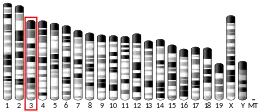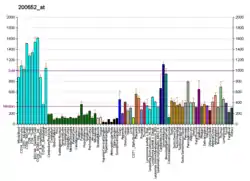| SSR2 | |||||||||||||||||||||||||||||||||||||||||||||||||||
|---|---|---|---|---|---|---|---|---|---|---|---|---|---|---|---|---|---|---|---|---|---|---|---|---|---|---|---|---|---|---|---|---|---|---|---|---|---|---|---|---|---|---|---|---|---|---|---|---|---|---|---|
| Identifiers | |||||||||||||||||||||||||||||||||||||||||||||||||||
| Aliases | SSR2, TLAP, TRAP-BETA, TRAPB, HSD25, signal sequence receptor subunit 2 | ||||||||||||||||||||||||||||||||||||||||||||||||||
| External IDs | OMIM: 600867 MGI: 1913506 HomoloGene: 2369 GeneCards: SSR2 | ||||||||||||||||||||||||||||||||||||||||||||||||||
| |||||||||||||||||||||||||||||||||||||||||||||||||||
| |||||||||||||||||||||||||||||||||||||||||||||||||||
| |||||||||||||||||||||||||||||||||||||||||||||||||||
| |||||||||||||||||||||||||||||||||||||||||||||||||||
| |||||||||||||||||||||||||||||||||||||||||||||||||||
| Wikidata | |||||||||||||||||||||||||||||||||||||||||||||||||||
| |||||||||||||||||||||||||||||||||||||||||||||||||||
Translocon-associated protein subunit beta also known as TRAP-beta is a protein that in humans is encoded by the SSR2 gene.[5][6]
Function
The signal sequence receptor (SSR) is a glycosylated endoplasmic reticulum (ER) membrane receptor associated with protein translocation across the ER membrane. The SSR consists of 2 subunits, a 34-kD glycoprotein (alpha-SSR or SSR1) and a 22-kD glycoprotein (beta-SSR or SSR2). The human beta-signal sequence receptor gene (SSR2) maps to chromosome bands 1q21-q23.[6]
References
- 1 2 3 GRCh38: Ensembl release 89: ENSG00000163479 - Ensembl, May 2017
- 1 2 3 GRCm38: Ensembl release 89: ENSMUSG00000041355 - Ensembl, May 2017
- ↑ "Human PubMed Reference:". National Center for Biotechnology Information, U.S. National Library of Medicine.
- ↑ "Mouse PubMed Reference:". National Center for Biotechnology Information, U.S. National Library of Medicine.
- ↑ Chinen K, Sudo K, Takahashi E, Nakamura Y (Jul 1995). "Isolation and mapping of the human beta-signal sequence receptor gene (SSR2)". Cytogenetics and Cell Genetics. 70 (3–4): 215–7. doi:10.1159/000134036. PMID 7789174.
- 1 2 "Entrez Gene: SSR2 signal sequence receptor, beta (translocon-associated protein beta)".
Further reading
- Tajima S, Lauffer L, Rath VL, Walter P (October 1986). "The signal recognition particle receptor is a complex that contains two distinct polypeptide chains". The Journal of Cell Biology. 103 (4): 1167–78. doi:10.1083/jcb.103.4.1167. PMC 2114348. PMID 3021779.
- Hartmann E, Görlich D, Kostka S, Otto A, Kraft R, Knespel S, Bürger E, Rapoport TA, Prehn S (June 1993). "A tetrameric complex of membrane proteins in the endoplasmic reticulum". European Journal of Biochemistry. 214 (2): 375–81. doi:10.1111/j.1432-1033.1993.tb17933.x. hdl:11858/00-001M-0000-0015-3BD2-F. PMID 7916687.
- Maruyama K, Sugano S (January 1994). "Oligo-capping: a simple method to replace the cap structure of eukaryotic mRNAs with oligoribonucleotides". Gene. 138 (1–2): 171–4. doi:10.1016/0378-1119(94)90802-8. PMID 8125298.
- Bodescot M, Brison O (January 1994). "Cloning and sequence analysis of the beta subunit of the human translocon-associated protein". Biochimica et Biophysica Acta (BBA) - Gene Structure and Expression. 1217 (1): 101–2. doi:10.1016/0167-4781(94)90131-7. PMID 8286409.
- Suzuki Y, Yoshitomo-Nakagawa K, Maruyama K, Suyama A, Sugano S (October 1997). "Construction and characterization of a full length-enriched and a 5'-end-enriched cDNA library". Gene. 200 (1–2): 149–56. doi:10.1016/S0378-1119(97)00411-3. PMID 9373149.
- Wang L, Dobberstein B (September 1999). "Oligomeric complexes involved in translocation of proteins across the membrane of the endoplasmic reticulum". FEBS Letters. 457 (3): 316–22. doi:10.1016/S0014-5793(99)01075-3. PMID 10471800.
- Zhang H, Li XJ, Martin DB, Aebersold R (June 2003). "Identification and quantification of N-linked glycoproteins using hydrazide chemistry, stable isotope labeling and mass spectrometry". Nature Biotechnology. 21 (6): 660–6. doi:10.1038/nbt827. PMID 12754519. S2CID 581283.
- Suzuki Y, Yamashita R, Shirota M, Sakakibara Y, Chiba J, Mizushima-Sugano J, Nakai K, Sugano S (September 2004). "Sequence comparison of human and mouse genes reveals a homologous block structure in the promoter regions". Genome Research. 14 (9): 1711–8. doi:10.1101/gr.2435604. PMC 515316. PMID 15342556.
This article is issued from Wikipedia. The text is licensed under Creative Commons - Attribution - Sharealike. Additional terms may apply for the media files.




